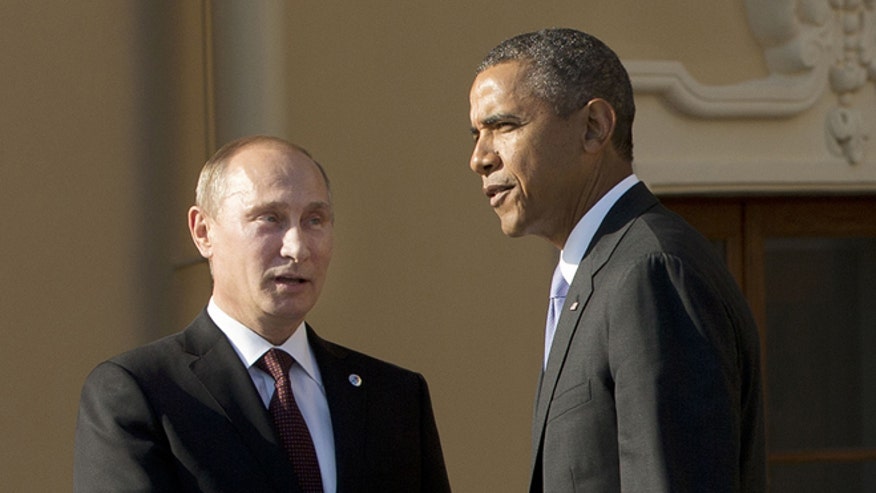
Today I stumbled across an op-ed piece from the New York Times by... wait a minute... who? Yes, I read it right: Vladimir Putin, the Russian President.
It caught me off guard; at first I thought it was just a hoax -- someone must've put a piece in the opinion section with a pseudinem or something... But no. President Putin actually wrote it. It's become a big news maker, being a remarkably out-spoken move on the part of any world leader... other than the pope, of course.
In the article, which I highly encourage you to read, I think Putin makes some good points. While we all may have different oppinions on the legitimacy, the authority, or even the intelligence behind the United Nations, it does, nonetheless, represent a body of nations that, at least at some level, strive for peace. As Putin states:
"The United Nations’ founders understood that decisions affecting war and peace should happen only by consensus, and with America’s consent the veto by Security Council permanent members was enshrined in the United Nations Charter. The profound wisdom of this has underpinned the stability of international relations for decades."
At the outset of the formation of the UN, steps were made to legitimize it by tapping into the legitimate authority found in its members. With a growing threat to undermine this established safeguard, however, comes the further degradation of delicate balance. Putin goes on:
"No one wants the United Nations to suffer the fate of the League of Nations, which collapsed because it lacked real leverage. This is possible if influential countries bypass the United Nations and take military action without Security Council authorization."
While other aspects of the op-ed piece stuck me as fair, some parts political, and big chunk a bit hypocritical, it was how Putin finished that left me pondering:
"I would rather disagree with a case he [President Obama, in his recent national address] made on American exceptionalism, stating that the United States’ policy is 'what makes America different. It’s what makes us exceptional.' It is extremely dangerous to encourage people to see themselves as exceptional, whatever the motivation." (emphasis mine)
This ending to his article was profoundly counter-cultural for Americans, and I'm afraid that the wisdom behind these words may have been lost because of it. Our culture is firmly rooted in such a staunch individualism, that to be "exceptional" is the principal way we identify ourselves, forgetting completely the ramifications to the community our actions may bring. Indeed, the community is not our concern: our only concern is the preservation of our personal "freedom" to do what we want, as we please; a freedom void of any substantial thought for the "other;" a freedom fundamentally "from" rather than "for" the ultimate and shared good.
Politics aside, my hope is that our nation can come to realize that patriotism is not correlative to use of force at all costs, nor is it some irrational "ghettoization" of our nation from the rest of the world. It is a well-founded and hard-fought confidence in the legacy of our nation alongside the respect for the dignity of humanity found throughout the world. As Putin, I think, eloquently puts it at the end of his article:
"We are all different, but when we ask for the Lord’s blessings, we must not forget that God created us equal."
No comments:
Post a Comment